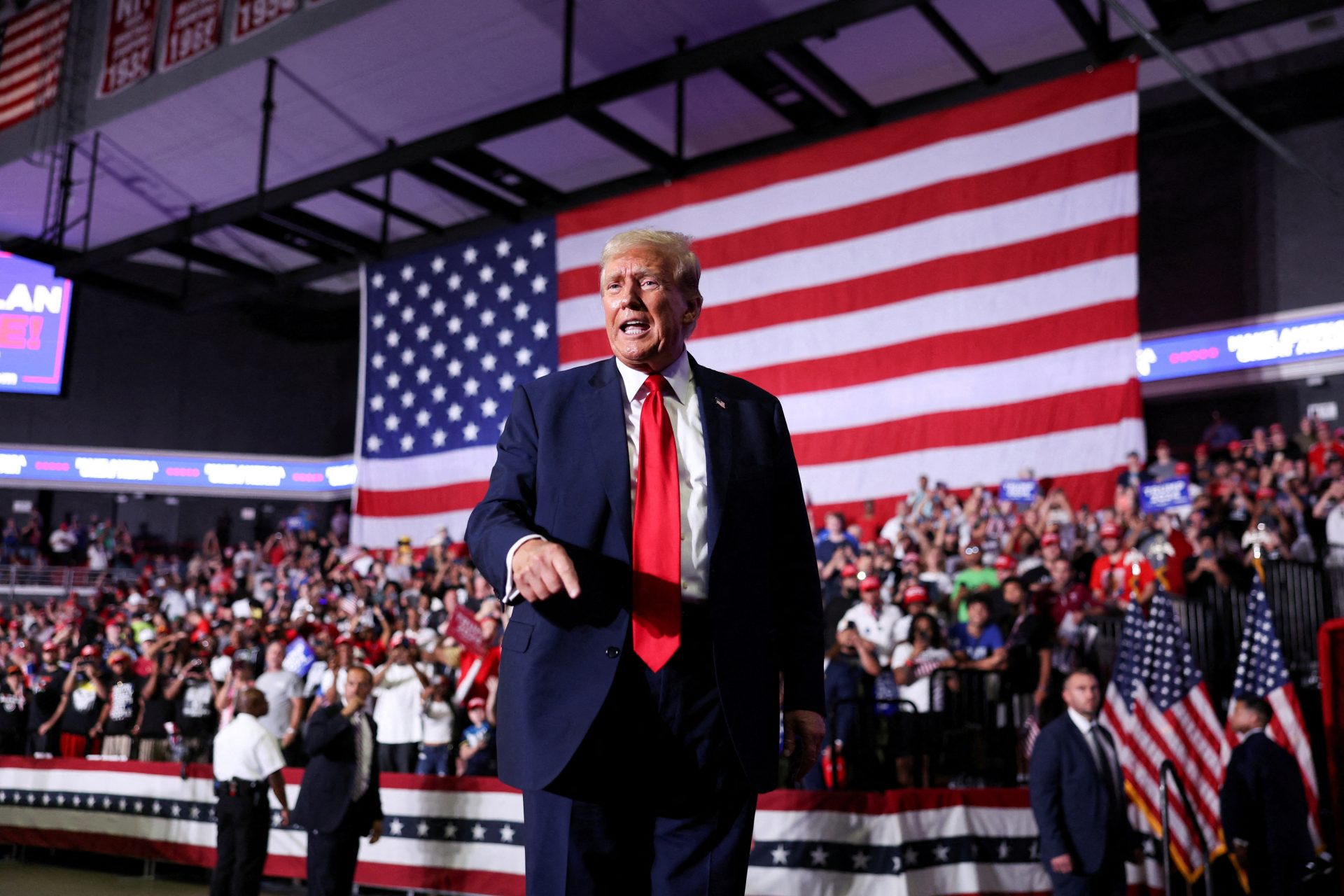By Gram Slattery and Jonathan Drake
ASHEVILLE – Republican presidential candidate Donald Trump lobbed a series of personal and policy-based attacks at his Democratic rival Kamala Harris in a speech on Wednesday, hoping to recover from a difficult stretch during which his lead in opinion polls has all but evaporated.
Some allies, donors and advisers have expressed concern at Trump’s attacks on the U.S. vice president’s intellect and suggested that he instead focus on what they argue are the failed policies Harris has promoted while in office.
Speaking to supporters in Asheville, North Carolina, Trump steered clear of broadsides challenging Harris’ racial identity and spoke about policy in more detail than he has at other recent events. But he continued to throw personal insults at her, at one point calling her “stupid” and denigrating her laugh as a cackle, saying: “That’s the laugh of a person with some big problems.”
Since emerging as the Democratic Party’s candidate after President Joe Biden dropped his own reelection bid last month, Harris has dramatically changed the race. Polls have consistently shown her closing the gap on Trump and some now have her ahead in the race for the Nov. 5 election.
The surge has rattled Trump’s campaign, and he has responded with insults. He has implied that Harris, whose mother was born in India and whose father was born in Jamaica, has only recently leaned into her Black identity. Some Republicans have smeared her with racist and sexist attacks.
Some Trump allies say the approach has hurt his campaign.
“Personally it makes no difference to me what Kamala wants to identify as,” said Bill Bean, a major Republican donor who hosted Trump’s vice presidential pick, JD Vance, at an Indiana fundraiser in late July.
RELATED: Trump heads to North Carolina as allies push for messaging shift
Bean said he had talked with Vance and Republican National Committee chair Michael Whatley about the need to attack Harris on her policy record, not her identity.
Trump spent the latter part of his North Carolina speech doing just that: attacking her policies while spelling out his own.

He said he would open up federal lands to drilling and ease the permitting process for pipelines among other measures designed to bring down consumer prices should he defeat Harris.
He also pledged to cut energy and electricity prices in half within 12 to 18 months of taking office. He did not specify how he would do so but repeated previous promises to bring more oil production online, including in Alaska’s Arctic National Wildlife Refuge, where the Biden administration has ceased issuing new permits.
He accused Harris of supporting a ban on fracking and said her position would prove a major liability in the critical swing state of Pennsylvania, where fracking is common.
While Harris opposed all new fossil fuel infrastructure projects when she was running for the Democratic presidential nomination in 2019, and the Biden administration tried and failed to impose a fracking ban on federal lands, her campaign says she no longer favours a ban.
RELATED: Could Kamala Harris beat Donald Trump in November’s presidential race?
At one point during the speech, Trump brought financier and informal economic adviser Scott Bessent on stage. The former president complimented the acumen and physical appearance of Bessent, who several Trump allies view as a leading contender for treasury secretary should Trump win in November.
In a memo released before Trump’s Asheville event, Harris campaign communications director Michael Tyler accused Trump of neglecting the middle class by opposing union protections and backing corporate tax cuts, among other measures.
Harris on Friday will travel to North Carolina, where she will talk about economic policy in a speech in Raleigh. She will outline a plan “to lower costs for middle-class families and take on corporate price-gouging,” a campaign official said.
Trump maintains a slim lead in North Carolina, according to an average maintained by the website Real Clear Politics, though Harris is within striking distance. That represents a marked difference from a month ago when Biden was the candidate and Republicans appeared to be running away with the state and were turning their attention to traditionally Democratic states like Minnesota and Virginia. (Reuters)


